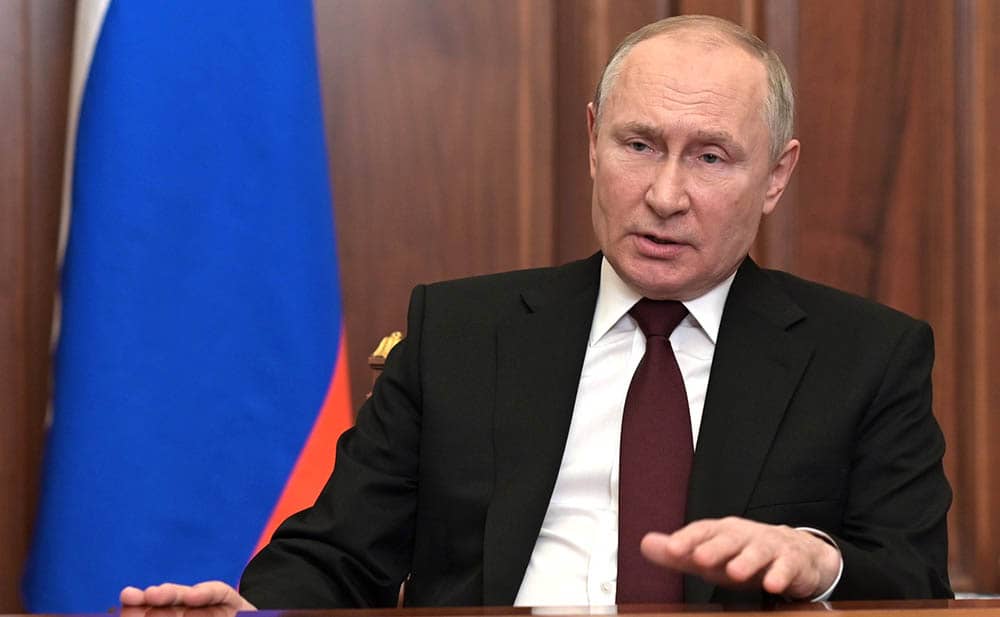
Above: File image of Russian President Putin. Image: Kremlin.ru.
The Dollar is weaker as part of the market's reaction to the news that U.S. President Donald Trump and Russia's Vladimir Putin agreed to start Russia-Ukraine peace talks following discussions on February 12.
"The British Pound strengthened against the U.S. Dollar, benefiting from the broader weakness of the dollar. Hopes of peace talks in Europe could weigh on the USD and favor other currencies," says Ruben Ferreira, an analyst at FlowCommunity.
U.S. Vice President JD Vance is set to meet Ukrainian President Volodymyr Zelensky at the Munich Security Conference tomorrow, where further headlines concerning progress towards a deal are expected.
Hopes of peace in Ukraine have bolstered sentiment on European assets, the Pound included, while weighing on oil prices and safe-havens such as the Dollar.
"There are clear risks to USD from any potential movement towards a ceasefire. We would flag three potential channels for this to play out: (i) lower energy prices, coupled with (ii) lower yields, leading to (iii) improved macro sentiment towards Europe," says Dominic Bunning, Head of G10 FX Strategy at Nomura.
Trump said he hopes to have a first meeting with Russian President Vladimir Putin in Saudi Arabia in the "not too distant future."
While initial signs of progress can weigh on the Dollar, the road to peace in Ukraine will be difficult, with many geopolitical analysts expressing concern that the U.S. and Russia are effectively sidelining Europe and Ukraine.
Asmara Jamaleh, an economist at Intesa Sanpaolo, says uncertainty surrounding the timeline and modalities of the process can limit upside potential against the Dollar, barring sudden favourable developments.
"While any effort for peace can only be a good thing, there's been alarm among European nations and in Ukraine especially, as Trump appears to have set the ball rolling in a phone call with Putin without discussing it with Ukraine’s President Zelenskiy first," notes Raffi Boyadjian, Lead Market Analyst at XM.com.
Defence Secretary Pete Hegseth said that Ukraine’s desire for NATO membership to protect against further Russian aggression is unrealistic while telling NATO allies that the U.S. would not contribute troops to any future peacekeeping force.
Trump and Hegseth said they would be happy for Russia to keep the land it conquered.
Ben Wallace, the former UK defence secretary who played a significant and leading role in the West's initial efforts to support Ukraine, said the bit that worried him the most "was this sort of reaching across to President Putin, the lack of support for Zelensky in his press conference yesterday."
He noted Trump wouldn’t even say if he viewed Zelensky as an equal and indeed didn’t really feel that Zelensky was going to be a major player in these negotiations; "it is going to be President Putin and the United States."
